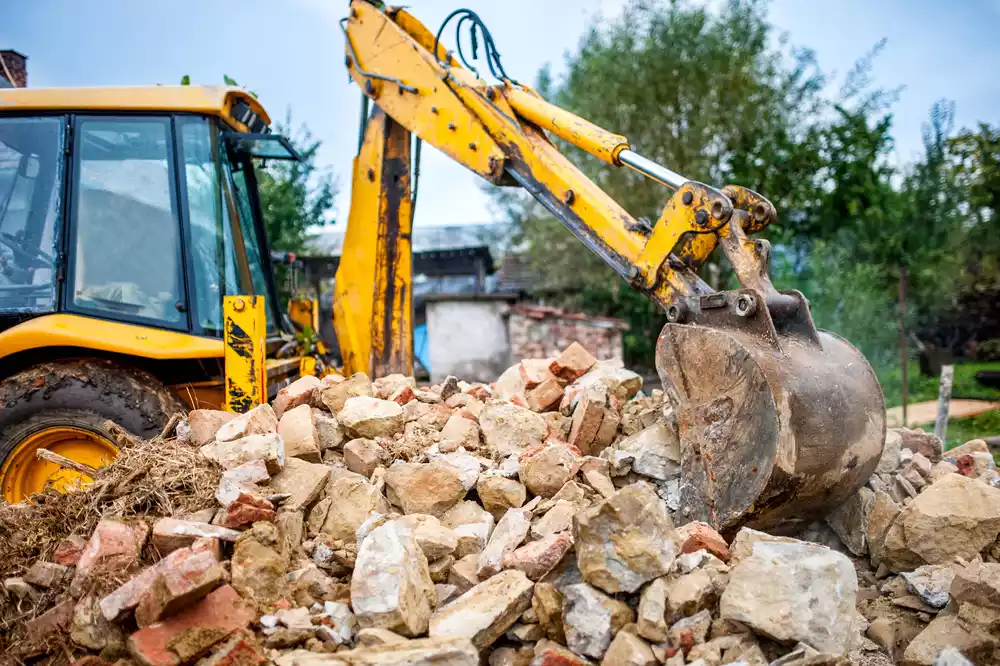The environmental impact of construction and demolition activities is significant, and managing it responsibly is crucial to creating sustainable processes. Demolition waste, which comprises materials from tearing down structures, can contribute to environmental degradation if not disposed of properly. However, understanding the potential for recycling and reusing this waste presents an opportunity for reducing the carbon footprint of construction activities and conserving resources. Here, we look at the types of waste generated and how they can be recycled to promote sustainability.
Types of demolition waste
Demolition waste includes a diverse array of materials, each with specific recycling pathways. These materials can be byproducts of residential, commercial, or industrial demolitions and include:
Concrete
As one of the heaviest and most ubiquitous materials in demolition waste, concrete is rich in potential for reuse. Demolished concrete can be crushed into aggregate, which can then be used for constructing new roads or fabricating new concrete mixes. This recycling process not only saves space in landfills but also reduces the demand for raw materials, minimizing environmental exploitation.
Wood
Structures often contain wooden fixtures and beams that generate substantial wood waste upon demolition. This wood can be repurposed rather than discarded. Potential uses include producing mulch and wood chips or refurbishing the wood for new construction projects. By recycling wood, we extend its utility and reduce the pressure on natural forests by lessening the demand for fresh timber.
Metal
Metals are among the most valuable materials found in demolition waste, including steel, copper, and aluminum. Metals can be extracted and reprocessed into completely new items. The recycling process for metals is highly energy-efficient compared to producing the same metals from virgin ore and greatly conserves limited natural resources. Moreover, the recycling of metals reduces air pollution and energy consumption.
Plastic
While it’s challenging, due to varying types of plastic, many plastics used in construction are recyclable. Sorting and processing plastics from demolition sites is essential for recycling. Once processed, these plastics can be molded into new products, diverting them from landfills.
Glass
Glass from windows and other fixtures can also be recycled. Through a process of crushing and melting, old glass becomes a significant ingredient in creating new glass products. This recycling loop reduces the need for fresh raw materials and prevents glass waste from accumulating in landfills.
Bricks and masonry
Like concrete, bricks and masonry can be pulverized and used in new construction projects. Reclaimed bricks, when intact, can be directly reused for building or landscaping. This helps maintain historical aesthetics in new builds when using aged bricks.
Key benefits of recycling demolition waste
Here, we look at why recycling demolition waste is paramount in the current environmental climate:
Reduction of landfill space
Recycling reduces the volume of waste sent to landfills, which helps conserve these spaces. Landfills can be sources of methane, a potent greenhouse gas, so keeping waste out of landfills contributes to fewer emissions.
Conservation of resources
Utilizing recycled material reduces the necessity for raw materials, thus preserving natural resources. This conservation is crucial in promoting sustainable development and reducing environmental degradation.
Lower greenhouse gas emissions
Industrial processes, such as creating metals from ore or producing new concrete, are energy-intensive and contribute significantly to greenhouse gas emissions. By using recycled materials, the demand for these industrial processes decreases, thereby lowering overall emissions.
Cost Efficiency in construction
Recycling materials like bricks or concrete into aggregates can often prove to be less expensive than purchasing new raw materials. This cost-saving aspect of recycling is particularly beneficial for large-scale construction projects seeking economic and environmental efficiencies.
Promotion of circular economy
Recycling promotes a circular economy, where resources are kept in use for as long as possible, extracting the maximum value from them before recovery and regeneration. This approach fosters innovation in building materials and construction techniques, paving the way for more sustainable urban environments.
Make an impact with Buendía Demolition
The journey to effective waste management in construction and demolition doesn’t have to be taken alone. For sustainable demolition waste, choose Buendía Demolition. Specializing in junk hauling in San Diego, our adept team is committed to sustainably managing demolition waste and reducing environmental impact. Whether you require comprehensive demolition services or targeted cleanup efforts, Buendía Demolition offers bespoke solutions tailored to every project size and scope. Collaborate with us to empower your construction projects with sustainable practices, ensuring they leave a positive legacy on our environment. Take a decisive step in green construction today with San Diego’s trusted demolition partner.

